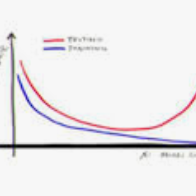Subset-Sum is an NP-complete problem where one must decide if a multiset of $n$ integers contains a subset whose elements sum to a target value $m$. The best known classical and quantum algorithms run in time $\tilde{O}(2^{n/2})$ and $\tilde{O}(2^{n/3})$, respectively, based on the well-known meet-in-the-middle technique. Here we introduce a novel dynamic programming data structure with applications to Subset-Sum and a number of variants, including Equal-Sums (where one seeks two disjoint subsets with the same sum), 2-Subset-Sum (a relaxed version of Subset-Sum where each item in the input set can be used twice in the summation), and Shifted-Sums, a generalization of both of these variants, where one seeks two disjoint subsets whose sums differ by some specified value. Given any modulus $p$, our data structure can be constructed in time $O(np)$, after which queries can be made in time $O(n)$ to the lists of subsets summing to a same value modulo $p$. We use this data structure to give new $\tilde{O}(2^{n/2})$ and $\tilde{O}(2^{n/3})$ classical and quantum algorithms for Subset-Sum, not based on the meet-in-the-middle method. We then use the data structure in combination with variable time amplitude amplification and a quantum pair finding algorithm, extending quantum element distinctness and claw finding algorithms to the multiple solutions case, to give an $O(2^{0.504n})$ quantum algorithm for Shifted-Sums, an improvement on the best known $O(2^{0.773n})$ classical running time. We also study Pigeonhole Equal-Sums and Pigeonhole Modular Equal-Sums, where the existence of a solution is guaranteed by the pigeonhole principle. For the former problem we give classical and quantum algorithms with running time $\tilde{O}(2^{n/2})$ and $\tilde{O}(2^{2n/5})$, respectively. For the more general modular problem we give a classical algorithm which also runs in time $\tilde{O}(2^{n/2})$.
翻译:Subset- Sum 是一个全 NP2 的问题, 在这里我们必须根据众所周知的会合量技术来决定一个多立方值的驱动程序数据结构, 应用于 Subset- Sum 和若干变量, 包括 Q- Sum( 其中一人寻找两个与目标值不符的子集) 。 Oum2 和 量算法分别运行于 $\ tilde{O} ( 2 ⁇ n/3} 美元) 和 $2 和 $2 。 这里我们引入了一个新的动态编程数据结构, 其应用于 Subset- sum ( 其中一人寻找两个与目标值不符的子集) 。 我们的数据结构可以建于 $S 和 美元, 之后, 也可以使用 Qset- comm 和 美元 数据结构 。




